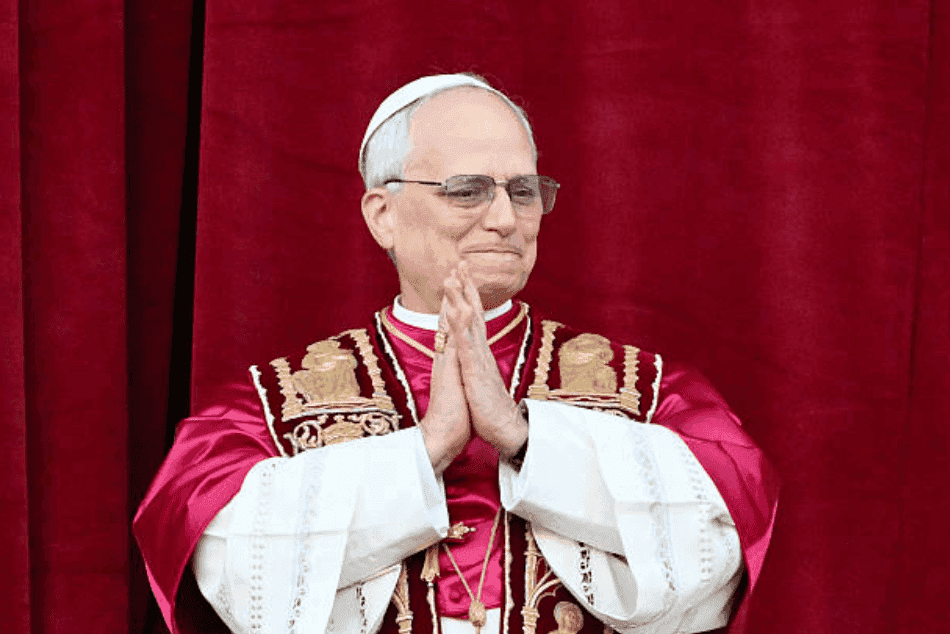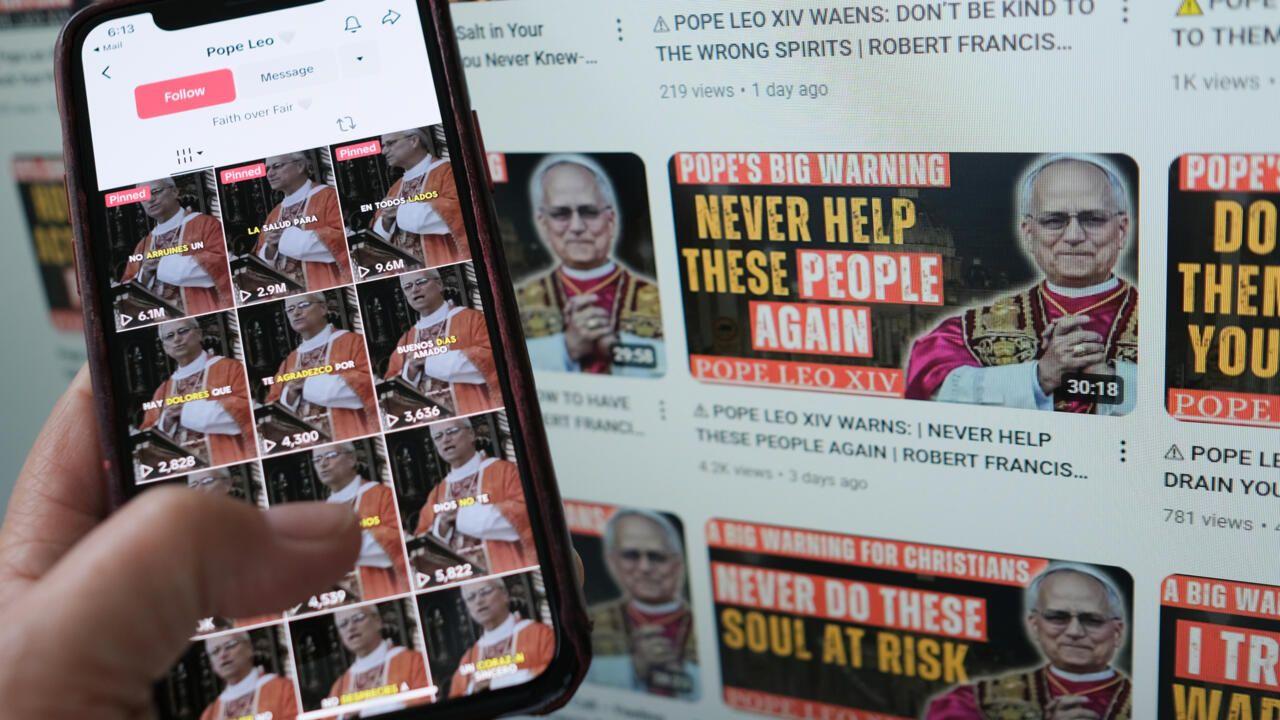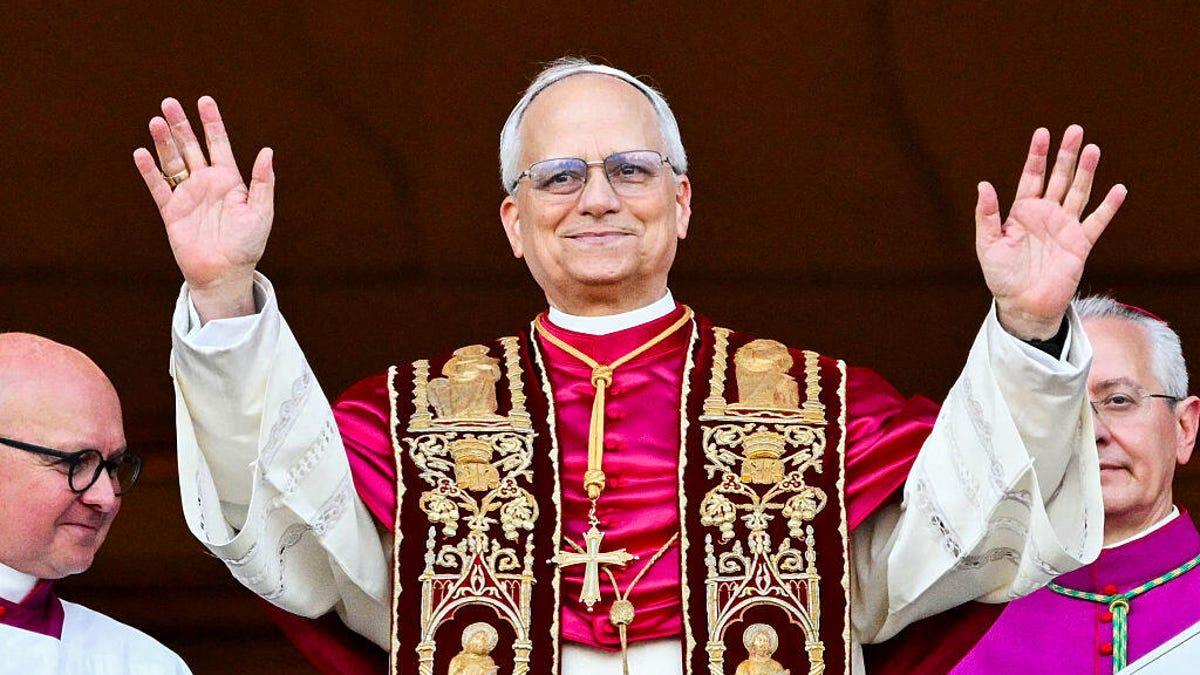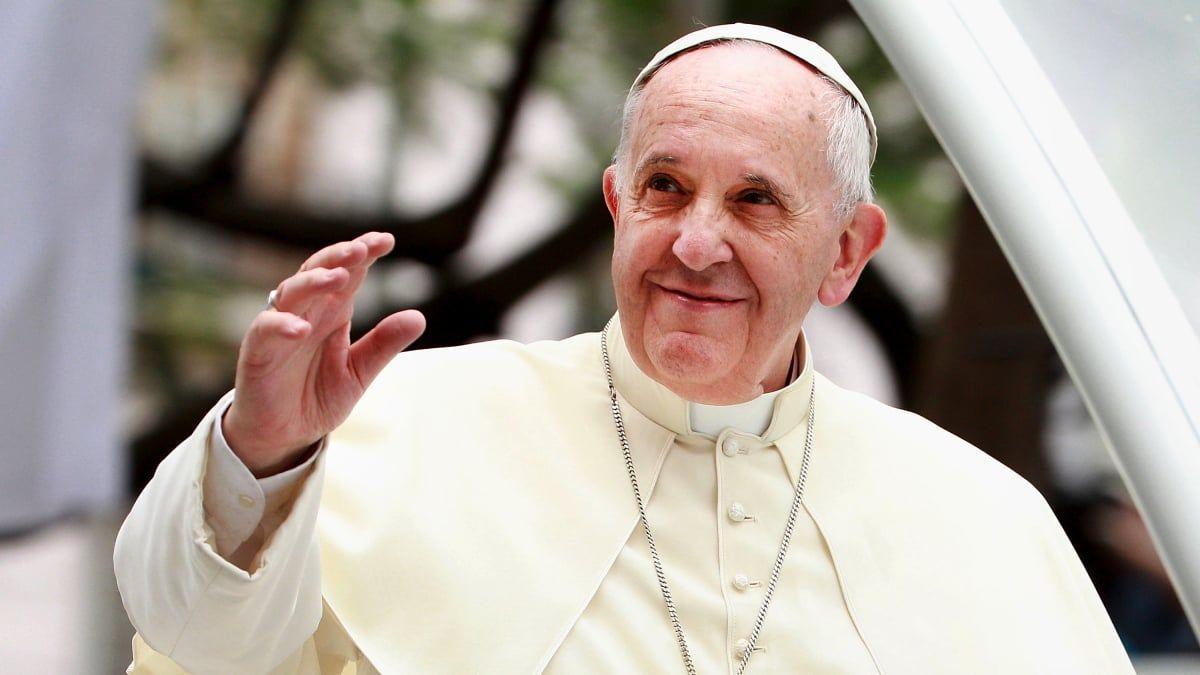Pope Francis Warns Davos Summit of AI's Potential to Exacerbate 'Crisis of Truth'
3 Sources
3 Sources
[1]
Pope warns Davos summit that AI could worsen 'crisis of truth'
Francis calls for close oversight of technology that raises 'critical concerns' about humanity's future Pope Francis has warned global leaders in Davos that artificial intelligence raises "critical concerns" about humanity's future and it could exacerbate a growing "crisis of truth". Francis said governments and businesses must exercise "due diligence and vigilance" to navigate the complexities of AI. In a written address at the World Economic Forum (WEF) in Switzerland on Thursday, the pope said AI could fuel the "growing crisis of truth in the public forum", as its output was almost indistinguishable from those of humans. "This technology is designed to learn and make certain choices autonomously, adapting to new situations and providing answers not foreseen by its programmers, thus raising fundamental questions about ethical responsibility, human safety, and the broader implications of these developments for society," he said in a statement read to Davos delegates by Cardinal Peter Turkson, a Vatican official. The pope has first-hand experience of artificial intelligence's ability to distort the truth - he is a popular subject in AI-generated deepfake images, including one of him embracing singer Madonna and a second in a Balenciaga puffer jacket. "Unlike many other human inventions, AI is trained on the results of human creativity, which enables it to generate new artefacts with a skill level and speed that often rival or surpasses human capabilities, raising critical concerns about its impact on humanity's role in the world," the pope said. AI has been a hot topic at Davos this year, with many shops along the ski resort's promenade taken over by technology firms promoting their products. Expectations for AI are sky-high among some delegates. Marc Benioff, the head of Salesforce, said he believed the current generation of chief executives would be the last ones to only manage humans. "From this point forward, we will be managing not only human workers, but also digital workers. And that is just incredible," he told business leaders. AI can also radically improve healthcare and save lives, according to Ruth Porat, the chief investment officer of Alphabet, Google's parent company. She said in Davos that Google's AlphaFold AI programme predicted the structures of all 200m proteins on the planet, and then open sourced the work - a move expected to accelerate drug discovery, as 2.5 million scientists have now accessed the information. Last year, Britain's Demis Hassabis, the co-founder of AI startup DeepMind, which was bought by Google in 2014, was awarded the Nobel prize for chemistry for this work. Arguing the case for AI, Porat said she had had cancer twice, and was "very fortunate" to have had early diagnosis. "I spoke to my oncologist about it, and he said the only way to democratize healthcare is with AI, because it means anyone, anywhere will be able to have the same high-quality early detection that I had," she added.
[2]
Pope decries 'crisis of truth' in AI message to Davos forum
VATICAN CITY (Reuters) - Pope Francis on Thursday urged political, economic and business leaders at the World Economic Forum (WEF) in Davos to keep close oversight of the development of artificial intelligence, warning the technology can exacerbate a growing "crisis of truth". In a written message read to the annual meeting at the Swiss resort town, which is partly focusing on A.I. this year, the pontiff praised the technology's abilities but said it also raises "critical concerns" about humanity's future. "The results that A.I. can produce are almost indistinguishable from those of human beings, raising questions about its effect on the growing crisis of truth in the public forum," Francis said. "To navigate the complexities of A.I., governments and businesses must exercise due diligence and vigilance," he said in the statement read on his behalf at the Davos meeting by Cardinal Peter Turkson, a Vatican official. Francis, leader of the 1.4 billion-member Catholic Church since 2013, has focused on ethical issues surrounding artificial intelligence in recent years. He spoke about the technology at the Group of Seven summit in Italy last June, and said people should not let algorithms decide their destiny. The pope was also the victim of a viral deepfake photo in early 2024, created by an image generating program, which appeared to show him wearing an ankle-length white puffer coat. (Reporting by Joshua McElwee; editing Philippa Fletcher)
[3]
Pope Decries 'Crisis of Truth' in AI Message to Davos Forum
VATICAN CITY (Reuters) - Pope Francis on Thursday urged political, economic and business leaders at the World Economic Forum (WEF) in Davos to keep close oversight of the development of artificial intelligence, warning the technology can exacerbate a growing "crisis of truth". In a written message read to the annual meeting at the Swiss resort town, which is partly focusing on A.I. this year, the pontiff praised the technology's abilities but said it also raises "critical concerns" about humanity's future. "The results that A.I. can produce are almost indistinguishable from those of human beings, raising questions about its effect on the growing crisis of truth in the public forum," Francis said. "To navigate the complexities of A.I., governments and businesses must exercise due diligence and vigilance," he said in the statement read on his behalf at the Davos meeting by Cardinal Peter Turkson, a Vatican official. Francis, leader of the 1.4 billion-member Catholic Church since 2013, has focused on ethical issues surrounding artificial intelligence in recent years. He spoke about the technology at the Group of Seven summit in Italy last June, and said people should not let algorithms decide their destiny. The pope was also the victim of a viral deepfake photo in early 2024, created by an image generating program, which appeared to show him wearing an ankle-length white puffer coat. (Reporting by Joshua McElwee; editing Philippa Fletcher)
Share
Share
Copy Link
Pope Francis addresses the World Economic Forum in Davos, cautioning against the risks of AI in amplifying misinformation and urging vigilant oversight of the technology.

Pope Francis Addresses AI Concerns at Davos Summit
In a significant intervention at the World Economic Forum (WEF) in Davos, Pope Francis has raised alarm over the potential of artificial intelligence (AI) to worsen what he terms a "crisis of truth" in public discourse. The pontiff's message, delivered on Thursday to global leaders gathered at the Swiss resort town, underscores the growing concern about AI's impact on society and calls for stringent oversight of this rapidly evolving technology
1
.The Vatican's Stance on AI
Pope Francis, who has been increasingly vocal about ethical issues surrounding AI, emphasized the need for "due diligence and vigilance" from governments and businesses in navigating the complexities of AI. His statement, read by Vatican official Cardinal Peter Turkson, highlighted the unique nature of AI compared to other human inventions:
"This technology is designed to learn and make certain choices autonomously, adapting to new situations and providing answers not foreseen by its programmers, thus raising fundamental questions about ethical responsibility, human safety, and the broader implications of these developments for society," the Pope stated
2
.AI's Impact on Truth and Creativity
The Pope expressed particular concern about AI's ability to produce results "almost indistinguishable from those of human beings," potentially exacerbating the spread of misinformation. This concern is not unfounded, as the Pope himself has been a subject of AI-generated deepfake images, including one depicting him in a Balenciaga puffer jacket
1
.Francis also noted AI's unique position in being trained on human creativity, enabling it to generate new artifacts with skill and speed that often rival or surpass human capabilities. This raises critical questions about AI's impact on humanity's role in the world
1
.AI at Davos: A Central Theme
The Pope's message resonates with the broader focus on AI at this year's Davos summit. Many shops along the ski resort's promenade have been taken over by technology firms promoting their AI products, reflecting the technology's growing importance in various sectors
1
.Related Stories
Contrasting Views on AI's Potential
While the Pope's message struck a cautionary note, other voices at Davos highlighted AI's potential benefits. Marc Benioff, head of Salesforce, predicted that current CEOs would be the last to manage only humans, anticipating a future where digital workers are also part of the workforce
1
.Ruth Porat, chief investment officer of Alphabet, Google's parent company, emphasized AI's potential to improve healthcare. She cited Google's AlphaFold AI program, which predicted the structures of all 200 million proteins on the planet, as an example of AI's capacity to accelerate scientific discovery
1
.The Pope's Ongoing Engagement with AI Ethics
This is not the first time Pope Francis has addressed AI-related concerns. He previously spoke about the technology at the Group of Seven summit in Italy last June, warning against letting algorithms determine human destiny
3
. His consistent engagement with this issue reflects the Catholic Church's recognition of AI's growing influence and the need for ethical guidelines in its development and application.References
Summarized by
Navi
[1]
[2]
Related Stories
Pope Leo XIV Takes Stand on AI: Calls for Ethical Framework and Regulation
19 Jun 2025•Policy and Regulation

AI-Generated Pope Sermons Flood Social Media, Raising Concerns About Misinformation
06 Jun 2025•Technology

Pope Leo XIV Rejects AI Avatar, Warns of Technology's Impact on Humanity
19 Sept 2025•Technology

Recent Highlights
1
Google Gemini 3.1 Pro doubles reasoning score, beats rivals in key AI benchmarks
Technology

2
ByteDance's Seedance 2.0 AI video generator triggers copyright infringement battle with Hollywood
Policy and Regulation

3
ChatGPT cracks decades-old gluon amplitude puzzle, marking AI's first major theoretical physics win
Science and Research





